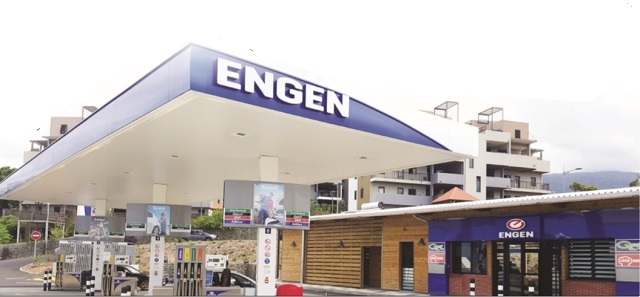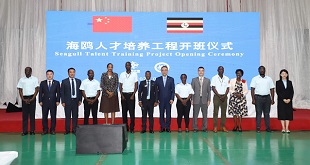
Transaction makes Vivo Africa’s second largest fuels and lubricants retailer
Kampala, Uganda | RONALD MUSOKE | Following six months of behind-the-scenes negotiations, Vivo Energy finally announced on March 1 the completion of the takeover of the operations of Engen Holdings Ltd across the continent.
The transaction comprises Vivo Energy’s issuance of 63.2 million new shares and US$ 62.1 million in cash to Engen. This means that Engen is poised to gain a 5% shareholding in Vivo Energy.
The new development means that the London Stock Exchange-listed Vivo which holds the Shell brand in Africa is now the second largest independent fuels and lubricants retailer on the continent.
Vivo Energy operates and markets its products in countries across North, West, East and Southern Africa providing fuels, lubricants and liquefied petroleum gas (LPG) to business customers across a range of sectors including marine, mining, construction, power, transport and manufacturing. Vivo also provides jet fuel to customers under the Vitol Aviation brand.
The group’s joint venture, Shell and Vivo Lubricants B.V., sources, blends, packages and supplies Shell-branded lubricants and has blending capacity per annum of around 158,000 metric tonnes at plants in six countries including; Ghana, Guinea, Ivory Coast, Kenya, Morocco and Tunisia.
The company has now increased its presence on the continent and now operates in 24 African countries including; Gabon, Malawi, Mozambique, Reunion, Rwanda, Tanzania, Zambia and Zimbabwe with over 2000 service stations.
However, it is still behind its rival Total that has 4,200 service stations in 44 countries on the African continent.
Prior to the takeover of Engen’s assets in the eight countries, Vivo Energy has over the last 60 years been providing fuels, lubricants, card services, shops, and other non-fuel services (oil change and car wash) for motorists and business in Uganda, Botswana, Burkina Faso, Cape Verde, Ghana, Guinea, Ivory Coast, Kenya, Mali, Mauritius, Madagascar, Morocco, Mozambique, Namibia, Senegal and Tunisia.
However, although Engen’s operations in the Democratic Republic of Congo were originally part of the deal, it has emerged Engen’s Congolese business portfolio remains under evaluation by Vivo Energy, pending an agreement between Engen and the government regarding the transfer.
Christian Chammas, the Vivo Energy CEO said the takeover opens an important new chapter for Vivo Energy. He said he will be welcoming hundreds of more employees from the eight new countries to the company’s network and a target market of almost 160 million.
Chammas noted that in Vivo Energy’s first seven years, the company had invested to grow its business, increasing its service station network and adding new and refurbished convenience retail and quick service restaurants.
“We have an opportunity to replicate this successful business model to drive growth and profitability in our new markets,” he said in a statement.
“We must seize this in order to benefit all our customers, deliver value for our shareholders, and move closer to achieving our goal of becoming Africa’s most respected energy business.”
Vivo Energy’s deal comes at a time when ExxonMobil 2018 Outlook for Energy shows that global fuel demand is expected to grow by about 20% over the next two-and-a-half decades, driven by the transportation and chemicals sectors. In Africa, the report notes that the demand is expected to grow by 30% as emerging economies advance.
Yusa’ Hassan, the managing director and CEO of Engen said “Engen is excited to embark on this growth journey with Vivo Energy, and add another strong and well respected brand to the Vivo Energy Group.”
Engen which mainly focuses on the downstream refined petroleum products market and related businesses with a presence across sub Saharan Africa and the Indian Ocean Islands will retain its interest in Engen Petroleum Limited (its South Africa business and refinery) as well as other businesses in Mauritius, Botswana, Ghana, Namibia, Swaziland and Lesotho, which are not part of the transaction.
****
 The Independent Uganda: You get the Truth we Pay the Price
The Independent Uganda: You get the Truth we Pay the Price


